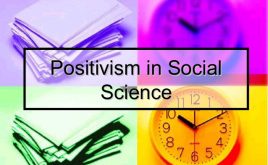On randomization and regression (wonkish) Randomization does not justify the regression model, so that bias can be expected, and the usual formulas do not give the right variances. Moreover, regression need not improve precision … What is the source of the bias when regression models are applied to experimental data? In brief, the regression model assumes linear additive effects. Given the assignments, the response is taken to be a linear combina- tion of...
Read More »Workshop on causal graphs (student stuff)
Workshop on causal graphs (student stuff) [embedded content]
Read More »Endogeneity bias — fiction in a fictitious world (wonkish)
Endogeneity bias — fiction in a fictitious world (wonkish) The bivariate model base and its a priori closure destines ‘endogeneity bias’ to a fictitious existence. That existence, in turn, confines applied research in a fictitious world. The concept loses its grip in empirical studies whose findings rely heavily on forecasting accuracy, e.g. a wide range of macro-modelling research as mentioned before. It remains thriving in areas where empirical results...
Read More »My favourite statistics books
My favourite statistics books Mathematical statistician David Freedman‘s Statistical Models and Causal Inference (Cambridge University Press, 2010) and Statistical Models: Theory and Practice (Cambridge University Press, 2009) are marvellous books. They ought to be mandatory reading for every serious social scientist — including economists and econometricians — who doesn’t want to succumb to ad hoc assumptions and unsupported statistical conclusions! How...
Read More »Rejecting positivism — the case of statistics
Rejecting positivism — the case of statistics Rejecting positivism requires re-thinking the disciplines related to data analysis from the foundations. In this paper, we consider just one of the foundational concepts of statistics. The question we will explore is: What is the relationship between the numbers we use (the data) and external reality? The standard conception promoted in statistics is that numbers are FACTS. These are objective measures of...
Read More »Gretl — econometrics made easy
Gretl — econometrics made easy [embedded content] Thanks to Allin Cottrell and Riccardo Lucchetti we today have access to a high-quality tool for doing and teaching econometrics — Gretl. And, best of all, it is totally free! Gretl is up to the tasks you may have, so why spend money on expensive commercial programs? The latest snapshot version of Gretl can be downloaded here. [And yes, I do know there’s another fabulously good and free program — R. But R...
Read More »A primer on causal inference
A primer on causal inference [embedded content] D H Kim’s twelve videos give a splendid introduction to modern thinking on causality. Highly recommendable student stuff!
Read More »Causation and causal inference
Causation and causal inference [embedded content] Who said science presentations have to be boring?
Read More »Prediction vs Causal Inference
Prediction vs Causal Inference [embedded content]
Read More »Econometrics as a testing device
Econometrics as a testing device Debating econometrics and its short-comings yours truly often gets the response from econometricians that “ok, maybe econometrics isn’t perfect, but you have to admit that it is a great technique for empirical testing of economic hypotheses.” I usually respond by referring to the text below … Most econometricians today … believe that the main objective of applied econometrics is the confrontation of economic theories with...
Read More » Heterodox
Heterodox





